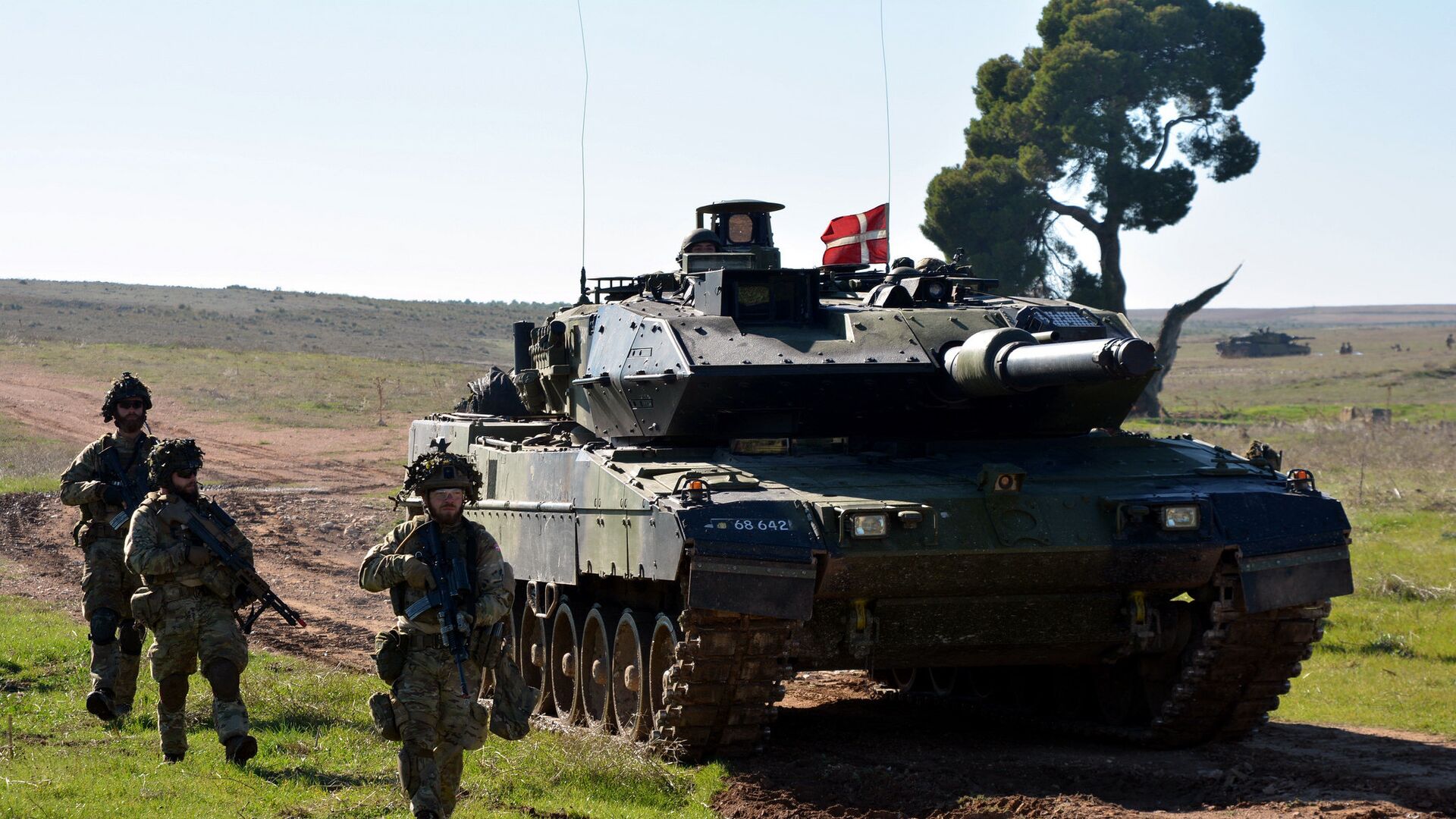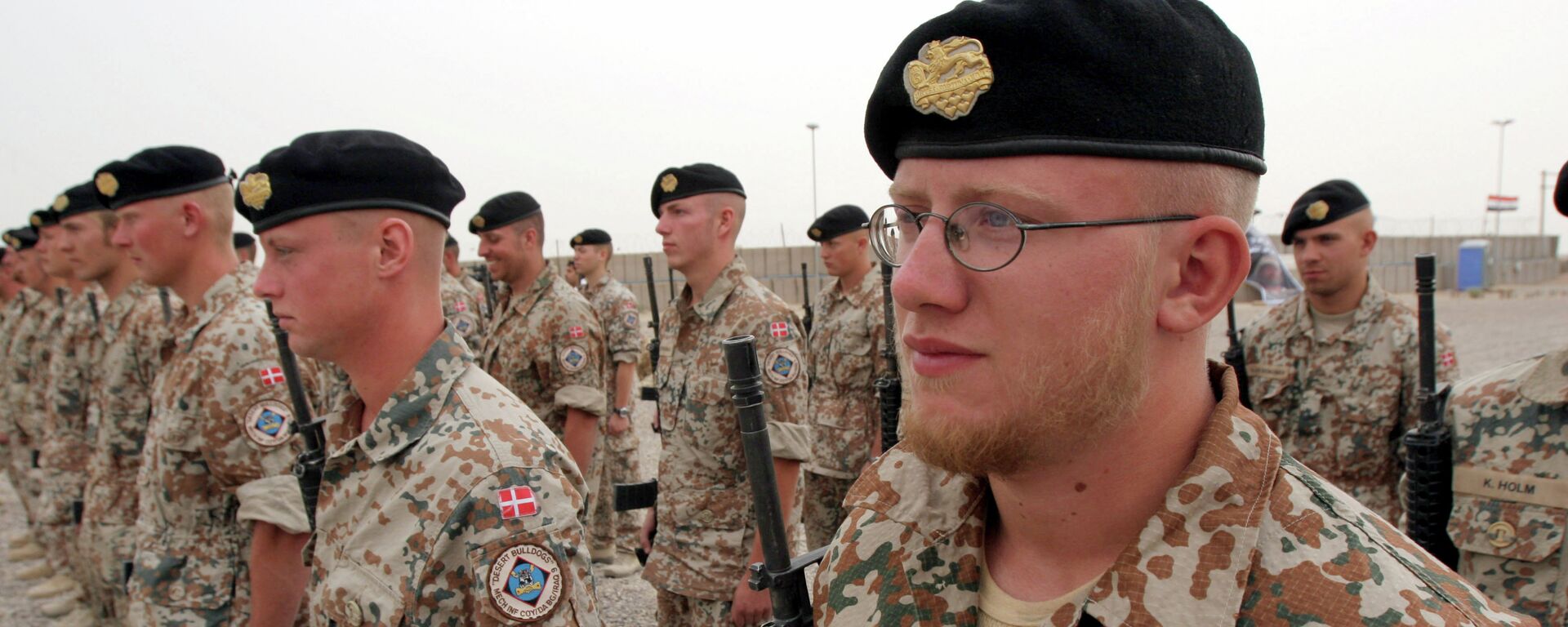'We Live in 2022': Danish Political Majority Opens to Conscripting Women
Subscribe
Until recently, only men were drafted worldwide; only a handful of nations conscript both men and women under the same formal conditions. According to Danish proponents of gender-equal conscription, it would help convert the nation's armed forces from expeditionary to territorial.
A political majority in Denmark is now open to subjecting women to compulsory military service.
As of now, participation for women, who make up to 20 percent of the Danish military, is voluntary. Instead of military duty, women have the right to perform military service and can choose to terminate it during the process.
In a rare event, the proposal to equalise the draft has united parties from the left and the right, from the Red-Green Alliance to the Liberals and the the Conservatives.
Liberals chairman Jakob Ellemann-Jensen argues that in order to convert the Danish military from an expeditionary to a territorial force, it must have significantly more conscripts and a longer draft. Ellemann-Jensen suggested that the reasons for having gender-segregated conscription are “no longer valid”.
Liberals chairman Jakob Ellemann-Jensen argues that in order to convert the Danish military from an expeditionary to a territorial force, it must have significantly more conscripts and a longer draft. Ellemann-Jensen suggested that the reasons for having gender-segregated conscription are “no longer valid”.
Red-Green Alliance defence spokesman Peder Hvelplund said he fully agreed that women should be drafted in the same way as their male peers.
“It is an expression of both a flawed and outdated way of thinking that there should be a difference in relation to how competent men and women are to function in the Armed Forces,” Hvelplund told TV2.
Social Liberal Party defence spokesman and former Foreign Minister Martin Lidegaard argued that gender equality should “apply in all areas” and pointed out that physical superiority today is less prevalent in the Armed Forces.
“Today's wars are fought with very advanced weapons, where women have as great opportunities to be skilled in war as men have,” Martin Lidegaard told TV2.
The idea of gender-equal conscription has gained traction outside of the Danish parliament as well. The gender centre Kvinfo said it would help fully accommodate the sexes on an equal footing and do away with a culture of harassment.
“As principle, I fully support the idea that there should be equality between the sexes, also in the armed forces,” its director Henriette Laursen told TV2.
The ruling Social Democrats said they would “openly accept” all proposals, yet stressed they won't take a stand on this matter before the parties negotiate a new defence agreement that would apply from 2024.
“We have no principled position against going down that track. We just think it's too early to address that part of the discussions yet,” Social Democrats political spokesman Rasmus Stoklund said.
The national-conservative Danish People's Party are so far the only one to have voiced principled opposition.
“I think there is a difference between men and women, of course there is. And there are also things within the Armed Forces where the physiological thing about our gender makes men more suited to it. But there are other roles in the Armed Forces that women can easily fill in,” its defence spokesman and former leader Kristian Thulesen Dahl said, arguing for tweaking the system in a way to make it more accommodating to women who come voluntary.
Historically, only men have been subjected to military drafts, and currently only a handful of states ranging from Israel to North Korea conscript men and women on equal conditions.
This list, however, includes Denmark's northern neighbours Norway and Sweden. In 2015, Norway became the first NATO member and the first European country to introduce compulsory military service for both men and women. Since then, the share of women in the Norwegian armed forces has been steadily rising. However, only a small percentage goes on to seek a career within the armed forces, with contemporary academic literature pointing out a culture of sexual harassment and bullying as one of the reasons.


